At one point on Wednesday, as many as 20,000 people online were tracking the live, charted progress of Titan Airways Flight ZT601 as it made its way across mainland Europe, reducing the distance minute by minute to the destination: England.
The plane took off from Muscat a little before 5pm local time, carrying what is likely to be remembered as its most precious cargo: two British-Iranian citizens, a charity worker and a retired engineer, who had not seen their children or partners for half a decade.
Earlier in the day, veteran BBC newsreader Joanna Gosling choked back tears on air as she read out the breaking news that Nazanin Zaghari-Ratcliffe was free. So was Anoosheh Ashoori, a father-of-two. Both had been held hostage in Iran since 2016 and 2017 respectively on fabricated espionage charges, and released in exchange for £400m and – according to the Revolutionary Guards-aligned Fars News Agency – an as-yet unnamed Iranian prisoner in Britain.
As the plane's wheels struck the cold tarmac at RAF Brize Norton at 1.10am, a lot of online observers were learning who Anoosheh Ashoori was for the first time. Far more had absolutely no idea that there were, and remain, three other British passport holders currently in Iranian captivity: conservationist Morad Tahbaz, who is now on furlough, lawyer Shahram Shirkhani, and a man called Mehran Raoof.
One of the well-placed parties to point this out on Thursday was the British-Australian academic Kylie Moore-Gilbert, who spent a traumatic two years as a hostage of Tehran before finally being released in a prisoner swap in November 2020.
“It's fantastic news that Nazanin and Anoosheh will imminently be reunited with their families in the UK,” Dr. Moore-Gilbert wrote on Twitter. “I'm so so happy their ordeal is finally over. But why has Morad Tahbaz been left behind? And why no mention whatsoever of the 4th British national, Mehran Raouf?”
There has been comparatively little mention of Mehran Raoof’s case since he was first arrested in Tehran on October 16, 2020. One aggravating factor among many is that a year and a half later, the elderly trade unionist is still not allowed to place telephone calls to countries outside Iran.
Other activists and rights advocates chimed in to highlight Raoof’s case on Wednesday. The Campaign to Free Political Prisoners in Iran (CFPPI) introduced him in its morning press release, adding: “and perhaps you haven’t heard his name in the media.”
Spokeswoman Shiva Mahbobi told IranWire on Thursday: “At CFPPI we are outraged by the lack of action from the FCO [UK Foreign and Commonwealth Office] on Mehran’s case. The FCO is responsible for Mehran's life and it seems they are neglecting the life of their own citizen.”
Born in Iran in the late 1950s, Raoof traveled to England to continue his education before the Islamic Revolution. Today, all his known close relatives live in Western countries. For years he divided his time between the UK and Iran, teaching English, meeting with other labor and women’s rights activists, and helping them translate materials from English to Persian, and from Persian to English.
These peaceful activities drew the regime’s ire, as they tend to. Unlike Nazanin, Iranian state media has shared nominal information about Raoof’s case– save for one article published by ILNA News Agency last February that accused him, Taghavi and three other detained activists of “subversion under the guise of human and labor rights” as alleged members of the Communist Party of Iran.
Following the arrest during a raid on his home, Raoof was held in solitary confinement – a form of psychological torture – for a month without pause, on Ward 2A of Iran’s notorious Evin Prison. In that time, he was denied access to his file, information about the case against him, or contact with his family.
Raoof and an elderly German-Iranian woman, Nahid Taghavi, were sentenced in Branch 26 of the Revolutionary Court in Tehran to 10 years, eight months in prison in August 2021, on the opaque charges of “forming a group composed of more than two people with the purpose of disrupting national security” and “propaganda against the regime”.
The trial was grossly unfair. Like others, Raoof was only allowed to meet his judiciary-approved lawyer, Mostafa Nili, on the day the trial got under way in April 2021. He saw him only once after that, at the second hearing in June.
Nili himself was arrested along with several other Iranian attorneys in mid-August. The group had been poised to sue Supreme Leader Ali Khamenei over the state’s negligent actions and policies during Covid-19. Nili was released on bail in January 2022, but has been able to do little to help his client since then.
Raoof is now on the public ward of Evin Prison, facing a minimum jail term of seven and a half years. A source close to the case, who provided information to IranWire via an intermediary, said Raoof “hasn’t even been provided with a bed and he sleeps on the floor... The prison conditions and being in prison have put psychological pressure on him.”
When Raoof’s case became public knowledge in early 2021, an array of labor rights groups sounded the alarm: from the Worker-communist Party of Iran (an entity separate to the Communist Party) to the France-based SOLIDAR and UNSA to the British Trades Union Congress (TUC). Spain's largest trade union confederation, the Workers' Commissions, also joined the call for Raoof’s immediate release, as did 97 separate unions under the umbrella of the International Workers' Network for Solidarity and Struggle.
The latter also wrote to the UK Foreign and Commonwealth Office (FCO): the same department responsible for bringing Anoosheh and Nazanin home. Last February the FCO told IranWire, after a nine-day delay, that it “continued to raise the issue” of British nationals held by Tehran, but declined to comment on Raoof’s case specifically.
IranWire now understands Raoof’s family did not realize they had to raise a case personally before the government would do something. Contacted again on Thursday, an FCO spokesman said: “We are discussing how best to provide consular assistance to Mehran Raoof with his family.”
Amnesty International’s lead on the case told IranWire on Thursday that Amnesty has no indication Raoof has yet received any consular support. “My understanding,” Nassim Papayianni said, “is there has not been any action by the UK government – at least, not in Iran.”
Amnesty published its last detailed report on Raoof and Taghavi in November 2021. Between then and now, Papayianni said, Raoof has continued to be blocked from calling his family. “Not being able to speak with loved ones – being cut off like that – is very difficult,” she said. “Sometimes you can send messages through other prisoners. But the individual is still cut off from their emotional support network.”
During a debate in the House of Commons yesterday afternoon, British Foreign Secretary Liz Truss fielded questions on the sudden release and imminent arrival home of Nazanin Zaghari-Ratcliffe and Anoosheh Ashoori, which she had hailed as “the result of tenacious and creative British diplomacy”.
Asked by two Labour Party MPs about Mehran Raoof’s case, Truss replied: “I must respect the individual’s request of whether their case should be raised in public. That is why we mention publicly only those individuals who have asked to be named.”
Amnesty has no indication that Mehran Raoof has asked not to be named, especially given that the prisoner in question is unable to use a phone. The charity plans to ask Truss for clarification on the comments.
“I would have thought,” Papayianni said, “that because he’s a British citizen, the British government would do everything in their power to get him released and out of the country.
“But if we look at what the British government has done with others, for example, Anoosheh Ashouri, for the longest time they don’t mention the name. Anoosheh’s family very publicly campaigned for the British government just to acknowledge who he was.
“We see that pattern repeating now with Mehran. They will not say his name.”
The FCO has been contacted for comment.
Related coverage:
Two Elderly Dual Nationals Sentenced to 10 Years in Prison in Iran
British-Iranian Mehran Raouf Awaiting Verdict in Evin Prison
British-Iranian Labor Activist Detained in Solitary Confinement for Six Months
visit the accountability section
In this section of Iran Wire, you can contact the officials and launch your campaign for various problems









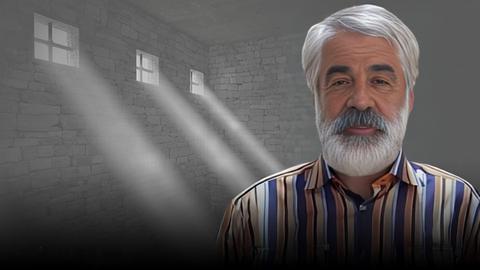

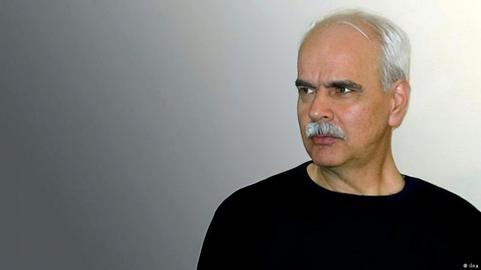
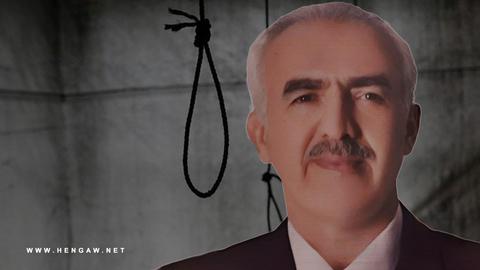
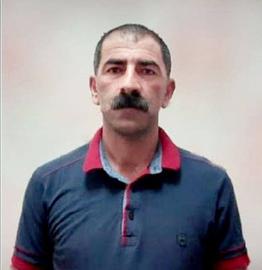

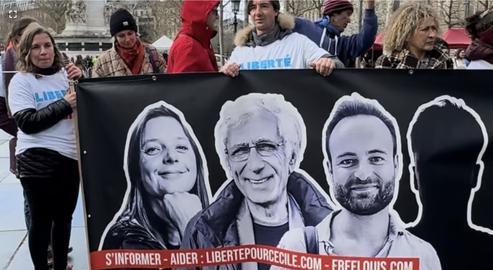
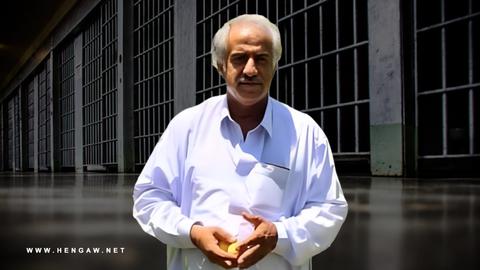


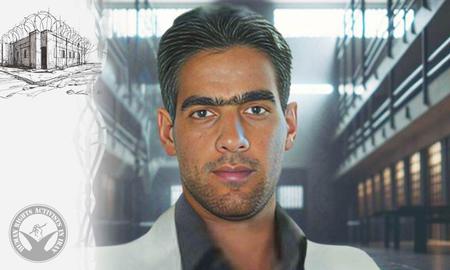


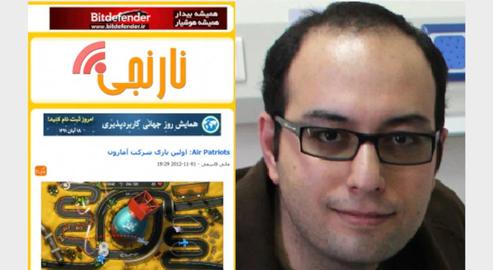
comments